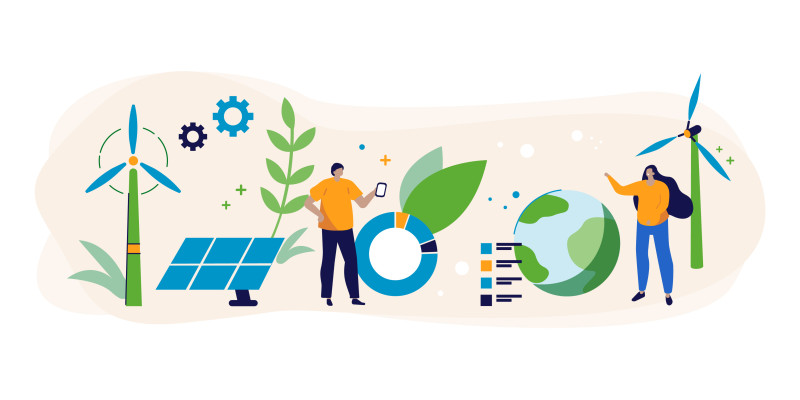Steffi Lemke, Federal Minister for the Environment and Consumer Protection said: “The potentials of AI and Big Data are immense – also for the protection of the environment, climate and nature. Harnessing them in a sustainable way is an important community task and is part of responsible digitalisation. The new AI Lab is innovative and enables the agencies of the Ministry of the Environment to develop customised applications for challenges – for example, for the more efficient evaluation of satellite data in order to better plan the expansion of wind and solar power. These applications are intended to support the work of the agencies and improve the understanding of problems, solutions and interrelationships in the environmental sector, both among the agencies themselves and among the public. This will serve as a model.”
UBA President Dirk Messner commented: “Digital transformation and artificial intelligence are a paradigm shift also in environmental protection. In future, we will be able to analyse environmental data completely differently and also more effectively. To do this, we must use new data science methods for environmental and sustainability research and build up competencies across the entire environmental department. Otherwise we will not keep pace with the vital digitalisation of administration. Our application laboratory is a unique experimental and design space for the analysis of environmental data.”
The AI Lab uses data science methods and technologies to better utilise the heterogeneous, complex and previously often difficult-to-access data sets in environmental administration. This includes earth observation and measurement data, process data for administrative and enforcement optimisation and many other environmental, nature and radiation protection data. Initial examples of the possible application of AI include the identification of wind and photovoltaic plants in satellite data for better planning. Also, illegally traded and protected animal and plant species can be better tracked down in online trading platforms. With the AI-Lab, all agencies of the environment department can develop AI applications based on environmental data – in addition to the UBA, these are the Federal Agency for Nature Conservation, the Federal Office for Radiation Protection and the Federal Office for the Safety of Nuclear Waste Disposal.
The AI Lab is an initiative within the framework of the BMUV's Environmental Digital Agenda and part of the BMUV's 5-Point Programme “Artificial Intelligence for the Environment and the Climate”. For this purpose, 26.4 million euros are available from funds of the Federal Government's Economic Stimulus and Future Package (2021). Around 30 staff will be employed at the Leipzig, Berlin and Dessau-Roßlau sites, initially on a temporary basis until 2025. The AI Lab places particular emphasis on the responsible handling of data and develops solutions for the resource-saving use of AI and Big Data (Responsible & Green AI). In the process, various aspects of sustainable software are in the spotlight, from the most energy-efficient use of hardware to the appropriate and ethical selection of data and algorithms, to usability by third parties in the context of open source.
The AI Lab is currently working on establishing effective national and international networks and collaborations on the topic of AI and its use in the environmental department. The aim is to build up methodologically and technically relevant competencies throughout the environmental department. The agencies want to learn from each other and thus give impetus to the digital transformation in environmental administration. “In implementing example applications (use cases), we are working closely with a wide range of experts from the environment department, from marine research and radiation protection to atmospheric physics in urban areas. It is important to us that the AI-Lab has both an external and an internal impact,” says Robert Wagner, head of the AI-Lab at UBA.
 Click to enlarge
Click to enlarge
